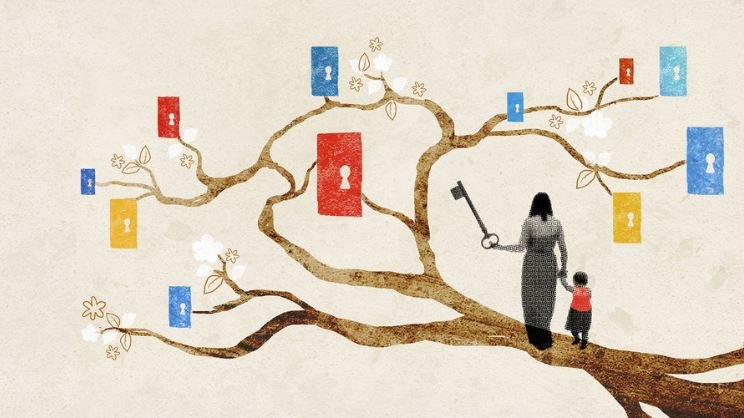"Most of us go through life unaware of how our environment shapes our behavior".
We've unwittingly placed ourselves in an environment of impatience, competitiveness, and hostility -- and it alters us. Even when we're aware of our environment and welcome being in it, we become victims of its ruthless power. If there's one thing I want to emphasize in this series, it all revolves around our total misapprehension of our environment. We think we are in sync with our environment but actually it's at war with us. We think we control our environment but in fact, it controls us. We think our external environment is conspiring in our favor -- that is, helping us, when actually it is taxing and draining us. It is not interested in what it can give us. It's only interested in what it can take from us
If it sounds like I'm treating our environment as a hostile character in our life dramas, that's intentional. I want us to think of our environment as if it were a person - as imminent and real as an arch-rival sitting across the table. Our environment is a nonstop Triggering Mechanism whose impact on our behavior is too significant to be ignored. Recognizing the metaphor let's us finally see what we're up against.
It's not all bad. Our environment can be the angel of our shoulder, making us a better person - like when we find ourselves at a wedding, class reunion, awards dinner, and the joyous feeling in the room overwhelms people. Everyone is hugging and promising to stay in touch and get together real soon. (of course, that feeling often fades the moment we return to our regular lives - in other words, find ourselves in a different environment). We are altered by the change. We forget our promises. We don't follow up. We don't stay in touch.
One environment elevates us, the other erases the good vibes
Much of the time, however, our environment works against us. Sometimes altering one factor can turn an ideal environment into a disaster. It doesn't change us. it changes everyone else in the room and how they react to us.
For example:
I've since learned that David Letterman lowered his late show studio temperature to a chilly 55 degrees before going on stage. He experimented with room temperature in the 1980s and discovered that his jokes worked best at 55 degrees, which makes the sound crisper and the audience more alert
Amazingly, by merely turning down the temperature in the room, the environment changes. I've learned how one tweak in the environment changes everything. The most damaging environments are the ones that compel us to compromise our sense of right and wrong. in the ultra-competitive environment of the workplace, it can happen to the most solid citizens.
"Some environment are designed precisely to lure us into acting against our interest".
That's what happens when we overspend at the high-end mall. Blame it on a retail experience specifically engineered from the lighting to the color schemes to the width of the aisles - to maximize our desire and liberate cash from our wallets. What's really strange is that the mall environment doesn't jump out at us like a thief in a dark valley. We have chosen to place ourselves in an environment that, based on past experience, will trigger the urge to buy something we neither need nor want. In overspending we fall into a trap that we have set for ourselves. Very smart people have spent their walking hours with one goal in mind: designing each detail so it triggers a customer to stay and spend.
Another good example would be: bedtime procrastination. We put off going to bed at the intended time because we prefer to remain in our current environment - watching a late-night movie or playing video games or cleaning the kitchen - rather than move to the relative calm and comfort of our bedroom. it's a choice between competing environments.
But because we don't appreciate how our environment influences our choice, we fail to make the right choice
We continue doing what we're doing, victims of inertia, unaware that getting a good night's sleep is not something we deserve because we're tired but rather something we must earn by developing better habits. If we understood how our environment can sabotage our habits, we'd change our behavior. we's stop what we're doing, turn off our cell phones, banish the TV from the bedroom, and turn in for the night -- as if we planned it.
There is one more disturbing news, our environment isn't static. It alters throughout the day. It's a moving target, easy to miss. it's situational, and it's hyperactive shape-shifter. Every time we enter a new situation, with its mutating who-what-when-where-and-why specifics, we are surrendering ourselves to a new environment and putting our goals, our plans, our behavioral integrity at risk. it's a simple dynamic: a changing environment changes us.
"If we do not create and control our environment, our environment creates and controls us".
Goldsmith, Marshall. Triggers. Profile Books Ltd, 2016


Bad Steemian! Bad!